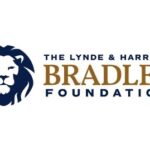CSDE Research Scientist Hana Sevcikova Supports Efforts of the United Nations to Produce Demographic Projections for all Countries of the World
|
For over a decade, the United Nations (UN) Population Division has been publishing demographic projections that are based on methodologies developed at the University of Washington. CSDE Senior Research Scientist Hana Sevcikova, PhD, is the lead collaborator in these efforts, along with CSDE Affiliate Adrian Raftery, Blumstein-Jordan Professor Emeritus of Statistics and Sociology (PI) and Patrick Gerland (United Nations). This work includes methods for probabilistic projections of fertility, mortality and population. In the most recent revision of the World Population Prospects (WPP), the WPP 2024 revision, probabilistic projections of migration have also been included for the first time.
The research is ongoing - not all challenges in this aim of producing fully probabilistic population projections have been solved. For example, Sevcikova, along with Raftery, Sara Curran, CSDE Director, and Crystal Yu, PhD candidate in Sociology and CSDE trainee, are working on expanding the framework from the national to the subnational level, while collaborating with CSDE External Affiliates Mike Morhman and Rob Kemp from the State of Washington’s Office of Financial Management (OFM) on its application to county-level projections.
If you’re interested in population projections, you can arrange a consultation appointment with Hana Sevcikova or any of CSDE’s scientific support staff, please use the CSDE Science Core Consultation Request form.
(read more)
|
 |
Casey and Colleagues Publishes New Research in Environmental Epidemiology
|
In recent years, power outages have become more common oftentimes because of extreme weather. Extreme heat, wind, and precipitation have become more frequent and intense because of climate change. This combined with aging electrical grid components that have not been upgraded to withstand severe weather events caused US electrical customers to experience power outages for an average of 8 hours in 2020. This exposes vulnerable people to health risks, for example, those who use electricity-dependent medical equipment. Research on this health risk has been limited due to lack of exposure data, but new national power outage data has become available since 2020. Joan Casey and colleagues published a research article in Environmental Epidemiology titled, “Assessing bias in measuring power outage exposure with simulations,” discussing these new data and how best to estimate exposure to power outages for health research. To learn about Dr. Casey and her colleagues’ research, visit the link to read the full research article.
(read more)
|
 |
Swanson and Co-Authors Publish Research in Population Research and Policy Review
|
David Swanson and colleagues Jeff Tayman and Mike Cline, recently published a research article in Population Research and Policy Review titled, “A New Approach to Probabilistic County Population Forecasting with an Example Application to West Texas.” This paper shows how measures of uncertainty can be applied to existing subnational population forecasts using the 107 counties that make up West Texas as a case study. The measures of forecast uncertainty are relatively easy to calculate and meet several important criteria routinely applied by state and local demographers. The authors also report the results of two independent comparisons supporting the argument that this approach is valid. The paper concludes it is well-suited for developing probabilistic population forecasts in the United States and elsewhere. To learn more about this study, visit the link to read the full article.
(read more)
|
 |
Morris, Goodreau, and Jenness Presenting at Summer Institute in Statistics and Modeling in Infectious Diseases
|
CSDE Former Director & Affiliate Martina Morris, CSDE Development Core Director Steve Goodreau, and CSDE Affiliate Samuel Jenness will be offering two modules pertaining to Network Modeling for Epidemics using EpiModel at this year’s SISMID (Summer Institute in Statistics and Modeling in Infectious Diseases).
(read more)
|
 |
|
|
*New* Friends of NCHS: FYI’s and Opportunities
- Please consider responding to the call for comments on NCHS collections to explain how you use the data and why they are important. With the current scrutiny, it’s important to take advantage of opportunities like these:
- If you have been affected by disappeared or altered federal data, please see this note from a reporter:
- Hello – I’m Laura Santhanam, a reporter with PBS News who is working on a digital print article to help our audience understand the parameters of the crater made in the federal workforce, but especially as it has affected the collection and use of data, both in this present moment and how those changes are expected to radiate going forward. I am particularly interested in learning about specific examples of disappeared data or data that have been altered since late January. If you would like to share your story, I am here to listen. Please message me over Signal at 1-662-801-0334. Since things are moving so quickly, we are trying to gather these stories sooner rather than later. Any help is much appreciated.
- The FY26 budget request for NCHS if for a $175 million, which is a reduction from the current level of $187 million. The proposal also calls for NCHS to be moved to the to-be-created HHS Office of Strategy. Please continue to push for NCHS to be well funded.
(read more)
|
 |
Share Your Story: Federal Grant Terminations and Data Restrictions
|
The Population Association of America (PAA) has updated the form used to collect details, on an ongoing basis, from members who have been adversely affected by actions taken by the Administration, including federal grant terminations and data restrictions. The revised form provides guidance and encourages individuals to share their stories, which will be featured in a regular newsletter designed to educate policymakers and the public about the consequences of these federal actions.
Please feel free to share this form with your colleagues.
(read more)
|
 |
Survey on Federal Data Use and Repositories
Recently, the Office of Research sponsored a panel and discussion on the challenges surrounding the loss of data, including data that is removed from publicly available sites, national surveys that are canceled, and standard survey measures or data changed for non-scientific reasons. In addition, the UW Libraries has been actively engaged in helping researchers find and preserve data. This survey, created jointly by the UW Faculty Council on Research (FCR), the UW Libraries, and the Office of Research, seeks to learn more about your research needs in this domain of concerns and challenges. FCR, the Office of Research, and the UW Libraries will summarize the results from this survey over the summer and present to the Faculty Senate in AUT 2025. We will use the survey results to inform efforts to safeguard data needed for research and to educate the UW community on alternative locations for accessing and securely storing data. (read more)
|
 |
Data Resource: Dewey Data
|
Dewey Data is a research platform that provides access to third-party datasets across a variety of data categories including foot traffic, construction permits, healthcare, workforce, consumer behavior, and transportation.
University of Washington faculty, students, and researchers are eligible for access and must register an individual account. Follow this link to learn about how to register.
(read more)
|
 |
Data Access With Federal Administration’s Transition
|
The challenges of data access during federal administrative transitions can happen every four years. What follows are some resources that might be useful. We will continue to update this blog post with new information. If you have any links that could be helpful, please send csde@uw.edu your updated and helpful information. We know that what follows may not provide you with the exact data you need, so let us know what you need and what’s missing and we can try to find where it is located.
(read more)
|
 |
Keeping Up With UW-Relevant Federal Policy Updates and Federal Administration Research Policy
UW’s Open Scholarship Commons Offer “Most Wanted” Seminars This Summer! Check it out!
Opportunities to Publish Research Policy Briefs with the Association of Population Centers
|
CSDE is a member of the Association of Population Centers, and through them can offer you or your colleagues the opportunity to have new or forthcoming research that you want to share with policymakers, journalists, educators, or other non-academic audiences. The Population Reference Bureau (PRB), in collaboration with APC, is working to improve the dissemination of population and reproductive health findings. If you have peer-reviewed research on population dynamics, population health, or reproductive health that you would like to share with a broader audience in an easily digestible format, APC and PRB may be able to help. To learn how, visit their website and take a look at recent research policy briefs.
(read more)
|
 |
Preprint Opportunities through Association of Population Centers
|
CSDE is a member of the Association of Population Centers and through them can offer you and your colleagues access to their preprint publishing platform. Research Scientists, Postdoctoral affiliates and faculty are invited to submit to the APCA Working Paper Series which gathers and disseminates original population science research papers. These working papers are authored or coauthored by scholars who are faculty or postdoctoral affiliates of the Association of Population Centers (APC) population centers.
(read more)
|
 |
Gates Foundation Grant Opportunity: RCTs on STIs and Reproductive Tract Sequelae in Non-Pregnant Women (7/7/25)
|
The Gates Foundation recently announced a Grand Challenges request for proposals for a Randomized Controlled Trial on Sexual Transmitted Infections (STIs) and Reproductive Tract Sequelae in Non-Pregnant Women. The goal is to support rigorous clinical research to evaluate the prevention, diagnosis, and management of STIs and their long-term reproductive consequences, such as pelvic inflammatory disease. The submission deadline is Monday, July 7, at 11:30 AM Pacific Daylight Time.
This Grand Challenge is part of our ongoing effort to address the problem of neglect in women’s health research and development, as highlighted by Anita Zaidi, the Gates Foundation's President of Gender Equality Division, in her keynote speech on the second day of this year's Grand Challenges Annual Meeting. The annual meeting was held virtually this week, and if you were unable to attend in real time, we encourage you to view videos from the plenary sessions focused on clinical research and trials, women's health, and regulatory harmonization.
(read more)
|
 |
*New* CSSCR Workshop: Introduction to R (7/9/25)
|
Description: This workshop aims to introduce basic tools and functions of R for reading, management and examining datasets. Attendees are assumed to have little to no experience with R.
- Instructor: Alireza Aminkhaki, CSSCR Consultant
- Date: Wednesday, July 9, 2025
- Time: 11:00am – 12:20pm
- Location: Savery 121 (Small Lab)
- Register here.
(read more)
|
 |
*New* CSSCR Workshop: Basics of STATA (7/15/25)
|
Description: This workshop will teach you how to get started using the statistical package Stata. The workshop will cover a) reading in data files from different sources, b) basic data manipulation, and c) some basic common statistical procedures. No previous Stata experience required.
- Instructor: Biying Zheng, CSSCR Consultant
- Date: Tuesday, July 15, 2025
- Time: 10:00am – 11:20am
- Location: Savery 121 (Small Lab)
- Register here.
(read more)
|
 |
Northwest Climate Adaptation Science Center Faculty Fellowship Program (7/15/25)
|
The Northwest Climate Adaptation Science Center is now accepting applications for its 2026 Faculty Fellowship Program, which supports research related to climate adaptation in Northwest natural and cultural resource management as well as training in the principles and practices of co-producing decision-relevant science. This is a “last-mile” program that funds activities aimed at enhancing the usability of existing research for natural resource managers. (read more)
|
 |
Kaiser Permanente Center for Gun Violence Research and Education Program: 2025 Funding Opportunity (7/23/25)
|
The Kaiser Permanente Center for Gun Violence Research and Education is pursuing a world free of gun violence, where impacted communities drive the meaningful change needed for a healthy and safe society. Coordinated in collaboration with Health Alliance for Violence Intervention (HAVI), the Center endeavors to transform the gun violence research and education field.
The Center seeks to meet these needs by broadening the field of research to include more researchers and organizations that focus explicitly on healthcare approaches to addressing gun violence and work closely with communities affected by gun violence.
(read more)
|
 |
*New* CO2 Foundation Funding Opportunity: Reducing the Threats of Extreme Weather Events (7/31/25)
|
The CO2 Foundation is excited to announce its third funding opportunity: Reducing the Threats of Extreme Weather Events.
In addition to the gradual climate changes of the last sixty years, we have seen recent surges in extreme weather that suggest an abrupt climate shift. For example, the annual tally of big windstorms in the US went from a baseline rate of 1.2 per year before 2008 up to 19 events in 2023, an order of magnitude more. This threat has a different time scale than gradual global warming. We must now prepare for big troubles in the next decade.
(read more)
|
 |
Corporate & Foundation Opportunities: Russell Sage Foundation Pipeline Grants Competition
|
Pipeline Grants Competition
Organization: Russell Sage Foundation
Award amount: $50,000
Deadline: 10/1/2025
Description: This initiative will support early-career scholars and promote diversity in the social sciences, including racial, ethnic, gender, disciplinary, institutional, and geographic diversity. Pipeline grantees are paired with mentors who offer advice on their projects and career development. The competition funds innovative research on economic mobility and access to opportunity in the United States. We are particularly interested in research focused on structural barriers to economic mobility and how individuals, communities and state entities understand, navigate and challenge systemic inequalities. Early-career faculty who have not previously received research grants (not counting a dissertation grant) or a visiting fellowship from RSF are eligible to apply.
(read more)
|
 |
Lynde and Harry Bradley Foundation Grants (Rolling)
|
The Bradley Foundation is a private grantmaking foundation that honors the principles and example of its namesakes, Lynde and Harry Bradley, by pursuing a mission to restore, strengthen, and protect the principles and institutions of American exceptionalism. The foundation has a rolling proposal process around grants for its Constitutional Order and Informed Citizens initiatives. Projects should have budgets between $25,000 and $200,000.
(read more)
|
 |
Sign up to join the Early Career listserv!
|
We invite early career faculty affiliates to join our new mailing list, csde_earlycareer. Among other things, this is the way to find out info about our quarterly Early Career Affiliate happy hours, and you won’t want to miss those! These will be a great way to meet up with other junior scholars in a fun and casual atmosphere over snacks and drinks. Who counts as early career, you ask? Typically we mean folks who are pre-promotion (i.e. assistant professor or equivalent), but we're not strict! Join the list here (Please note - this is for faculty only - we are strict about that. Sorry, all others!)
(read more)
|
 |
|
|

